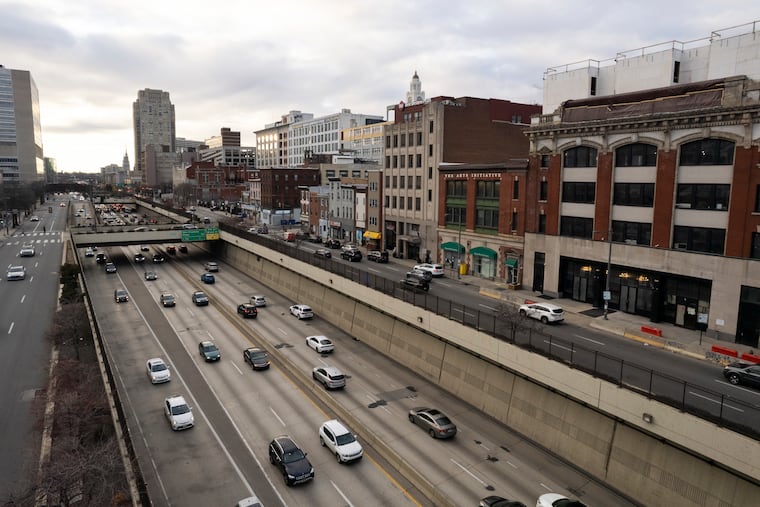The Vine Street Expressway cap — known as the Chinatown Stitch — is in existential peril after the Republican mega bill that passed earlier this month appears to have clawed back most of its federal funding.
“The money for the construction of [the stitch] has been removed in the bill,” said Councilmember Mark Squilla, whose district includes Chinatown.
The project involves capping the highway from 10th to 13th Streets, allowing for the creation of a park and more developable land that would knit together Chinatown with the neighborhood to its north.
But progress is dependent upon the almost $159 million in federal funds allotted to the project in 2024. Trump and the Republican-majority Congress have sought to unwind many Biden-era policies and, among many other things, the so-called Big Beautiful Bill rescinded federal infrastructure commitments that had been promised but not yet allocated.
Only $8.3 million for the planning of the Chinatown Stitch had been obligated and is actively being spent, according to advocacy group Transportation for America. But 95% of the federal funds — $150.5 million for the actual construction of the project — seems to have been annulled by Trump’s legislation.
However, stakeholders have not been contacted by federal authorities about the loss of the funds.
Neither the Pennsylvania Department of Transportation (PennDot) nor the city’s Office of Transportation and Infrastructure Systems (OTIS) has heard anything official from federal authorities about the funding changes.
“PennDot and the city are currently awaiting guidance from FHWA [Federal Highway Administration] regarding recent federal legislation,” Krys Johnson, PennDot spokesperson, said in an email message.
“In the meantime, PennDot and FHWA are collaborating with the city as it progresses with the preliminary design and progress reporting, which are still funded under the preliminary design grant agreements,” Johnson said. “However, we do not expect the project development phase to move into final design until a clear funding plan for construction is established.”
A spokesperson for the Parker administration said that OTIS had nothing to add to PennDot’s statement and that the city had heard nothing from Washington, D.C., about the remaining funds.
A spokesperson for the Federal Highway Administration did not respond to the Inquirer’s questions by publication time.
Squilla sought to downplay the scale of the setback, noting that the project is still in the planning stage.
“My thinking is let’s continue with the project and move along as is,” he said. “By the time we get the design done, there’ll be elections. They’ll be starting to campaign” for the 2028 presidential election.
In late 2023, construction was projected to begin in 2027, although at other points a groundbreaking was anticipated in 2028.
“When we design things, a lot of times that takes a lot longer than anticipated,” Squilla said. “Things change as design moves forward, so I don’t think the additional time will actually hurt the project. It might make it even better.”
The planning for the Chinatown Stitch began in 2023, when it received $1.8 million federal planning grants and $2.2 million from the city, state, and the Knight Foundation.
For Chinatown advocacy groups, the proposal represented a chance to heal the wound caused by the Vine Street Expressway being built through their neighborhood.
“The expressway has retarded the growth of Chinatown, and the cap was a way to convert it back into a normal urban street as best we could,” said John Chin, executive director of the Philadelphia Chinatown Development Corp. “There was a lot of excitement in Chinatown, residents and businesses, about it. Now we are just wait and see.”

